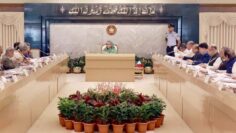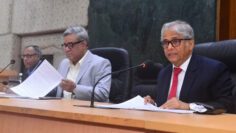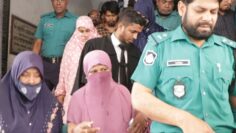BNP reschedules rallies, blames govt for imposing ban
PBC News: BNP has rescheduled its ongoing programmes demanding the release of their party chairperson Khaleda Zia and blamed the government for imposing ban on political rallies at open spaces.
“We have decided to reschedule our ongoing rallies considering the public interest and other relevant issues. We urge all central, city and district units’ leaders of BNP and its affiliate bodies to continue their preparations for the success of the meeting on the rescheduled date,” said the party’s standing committee member Nazrul Islam Khan at a press conference held at party chairperson’s Gulshan office on Friday.
Nazrul Islam Khan said, “While experts, including World Health Organization, say that Covid spreads more in closed places than in open spaces then the government in its 11-point directive has given an opportunity to continue it in many places by banning public gatherings in open spaces.”
“This unreasonable government decision was certainly not aimed at preventing Covid infection. It has been given (instructions) to obstruct and suppress the ongoing protest of the opposition parties.”
He said, “Elections of city corporation, union parishad can be held, hat-bazaar, vehicles, educational institutions can be kept open, shops and shopping malls can be kept open in accordance with health rules. When fairs can be organized all over the country, Mujib Year celebrations can be prolonged, then there can be no rational reason for banning peaceful social, religious and political activities in the open in compliance with health rules.”
“Therefore, we consider this restriction to be politically motivated, undemocratic and repressive,” said the top BNP leader.
The BNP has rallied in 32 districts in the first phase demanding Khaleda Zia’s release and her advanced treatment abroad.
Later, in the second phase, they announced to hold rallies in 39 districts. Rallies have already been held in several districts on Wednesday.
BNP standing committee members Gayeshwar Chandra Roy, Amir Khasru Mahmud Chowdhury, Begum Selima Rahman, and Iqbal Hasan Mahmud Tuku, were, among others, present.



















